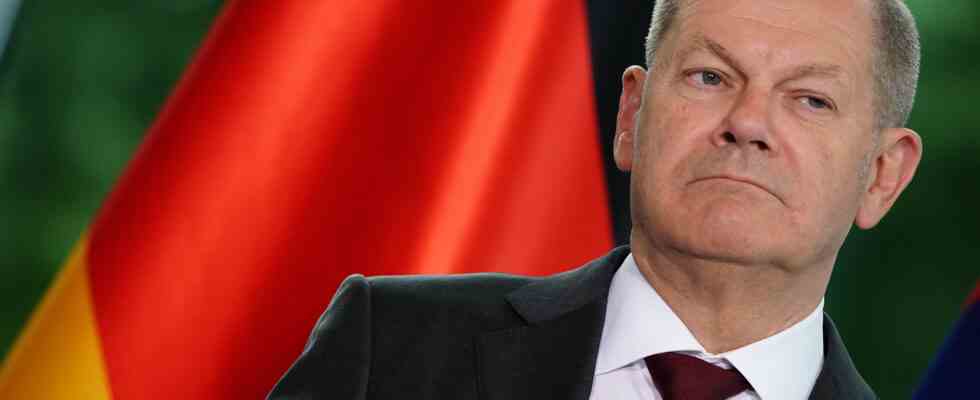Status: 10/17/2022 6:52 p.m
After weeks of argument, Chancellor Scholz has spoken a word of power: The three remaining nuclear power plants should be able to continue operating until April 15, 2023. He announced this in a letter to the responsible ministers.
The remaining three German nuclear power plants should be able to continue running until April 15, 2023 at the latest. Chancellor Olaf Scholz decided that.
Based on his authority to issue guidelines, Scholz ordered that the legal basis be created to operate the Isar 2, Neckarwestheim 2 and Emsland nuclear power plants beyond December 31, until April 15, 2023 at the latest. He sent a letter to this effect to Economics Minister Robert Habeck, Environment Minister Steffi Lemke and Finance Minister Christian Lindner.
Dispute between the Greens and the FDP
For days, the FDP and the Greens in particular had been arguing about whether and for how long the three nuclear power plants that were still in operation should continue to operate. At a party congress over the weekend, the Greens decided to support so-called stretching operations for the Isar 2 and Neckarwestheim 2 kilns until mid-April 2023 if necessary.
The FDP also wanted to keep the third Emsland nuclear power plant connected to the grid and run all three until 2024. If necessary, nuclear power plants that have already been shut down should be reactivated.
Lindner welcomes the decision
Scholz went on to say that “in parallel with this decision” an ambitious law to increase energy efficiency should be presented. In addition, the political agreement between the economics ministries in the federal government and North Rhine-Westphalia and the energy company RWE on the coal phase-out in the Rhenish area should be “implemented by legislation”. Among other things, the agreement provides for two lignite-fired power plants to run longer, until 2024, but to bring forward the phase-out of coal in the Rhenish mining area by eight years to 2030.
In his letter, Scholz asks the responsible ministers “to present the relevant regulatory proposals to the cabinet in a timely manner”. Lindner welcomed Scholz’s decision. “It is in the vital interest of our country and its economy that we maintain all energy production capacities this winter. The Chancellor has now created clarity,” said Lindner.
Nuclear power plant dispute: The Chancellor has decided
Uli Hauck, ARD Berlin, 10/17/2022 6:55 p.m

